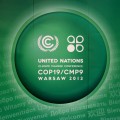Low-Balling At COP19
Kahil Lloyd | November 13, 2013.
With the outcomes of Warsaw being feared as dismal, we take a look into what we can expect at these negotiations.
1. How low can your expectations go?
Parties are focused on working towards an agreement in 2015 at COP19. After the failure in Copenhagen, expectations are deliberately being kept low. A lack of political will continues to be pervasive in crippling progress in the UNFCCC. Don’t expect any major breakthroughs in Warsaw, but be optimistic for some small victories.
2. Warsaw as the “Finance Conference”
A big priority is trying to get commitments for the Green Climate Fund (GCF) and the Adaptation Fund. Another item that might emerge in discussions is the role of private finance in these funds.
Parties committed themselves in Copenhagen to scale up finance for the GCF to $100 billion USD a year by 2020. Four years later, only a small proportion of the funds have been pledged. Nepal, on behalf of the Least Developed Countries urged for “clarification on how the developed countries are going to meet their goal to jointly mobilise and disburse the USD $100billion a year by 2020 is key.”
Developing countries are looking for a clear roadmap on finance in order to be confident that they can move on to other areas of negotiations.
3. Movement on Loss and Damage
Loss and damage was the carrot used to close the deal in Doha, when it looked like the developing countries would not be satisfied by what was on the table, in response to their demand for climate justice. Earmarked to be resolved in Warsaw, the possible establishment of an international mechanism to finance loss and damage caused by climate change is an area at the forefront of the minds of many parties.
In the opening plenary, many developing parties raised this issue as a priority for the conference. Nauru, on behalf of the Alliance of Small Island States, said that there is currently low ambition and inadequate support.
Parties agree on the broad principle of loss and damage, however there is significant divergence on the specifics. Developing nations are looking for a legally binding mechanism, and developed countries are attempted to avoid increased responsibility and liability.
4.Ratification of Kyoto’s Second Commitment Period
In Doha, parties agreed to the second commitment period of the Kyoto Protocol. At present, only a handful of countries have actually ratified the amendment. Given that parties agreed to this continuation in Doha, for legal effect parties must ratify the amendment.
5. The unexpected
World events, particularly natural disasters, play a role in influencing the tone and urgency within the negotiation halls of the UNFCCC. The recent devastation of Typhoon Haiyan has dominated all media coverage of COP19, but is yet to drive any momentum towards any actual progress within the process. Filipino lead negotiator, Yeb Saño, has pledged to refrain from eating until “sufficient progress” has been made at the talks.
It is unclear if this act, and the solidarity movement behind it, will spark any change. It is clear, however, that Saño’s actions has put a face to the devastating impacts of climate inaction. As Saño said in Doha and reiterated in Warsaw: “If not us, then who? If not now, then when? If not here, then where?” Will Warsaw deliver? Time will tell.
By Kahil Lloyd, Andrés Fuentes and Holly Jones, photo by Linh Do.











comment